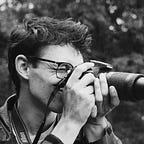The Sullivan Fortner Trio
Sullivan Fortner slouched over a Steinway grand piano, poised as if waiting for inspiration to strike. In loose-fitting clothes and a fedora, the jazz pianist’s casual appearance downplayed his national acclaim.
But, compared to some of his prior venues — ranging from the Village Vanguard and Jazz at Lincoln Center to the Monterey and Newport Jazz Festivals — this was a casual setting. In the MU Fine Arts Building’s Whitmore Recital Hall, Fortner was joined by Tyrone Allen on upright bass and Kayvon Gordon on drums for an educational clinic, his second of the day. The clinic was in light of the day’s Jazz Fest, during which high school jazz ensembles from around Missouri and beyond performed for judges in a competition for the top score.
The trio was taking requests from a crowd of about 30 or 40, leaving hundreds of seats open and more room for sound to travel. Most in attendance were high schoolers, and most were awestruck.
This time, Fortner was preparing to field a request for Caravan, a jazz standard co-composed and popularized by legendary pianist and bandleader Duke Ellington.
After several moments of rumination and minimal coordination with Allen and Gordon, Fortner launched into a rendition of the tune, improvising heavily and working his way slowly but surely to a melody well-known to the jazz listeners in his audience.
With his back to his drummer and his bassist to his left, Fortner’s trio was reminiscent of Oscar Peterson’s, especially as they played through a hallmark of the Ellington songbook.
But Fortner made sure to stand out from his ivory-playing predecessors. He boldly varied note length and space throughout the familiar melody, itself prone to such variations. The pianist was sure not to reproduce the original record for a room full of budding musicians, most of whom were surely in attendance hoping to learn a thing or two about improvisation rather than imitation.
The teens in the room watched, with a few jaws open, as Fortner coolly flew through the chart. In character with many other fellow jazz virtuosos, he played casually and loosely, as though what he was doing was easy. The notes coming from the Steinway’s strings seemed to be speaking to his bandmates, and the bandmates would speak back — with an extra hit on the snare or a quick, subtle run on the upper range of the bass.
After toying with the melody and interacting and improvising back and forth with Allen and Gordon, Fortner brought the song to an end. As the crowd applauded, he swiveled on the bench to face them, ready for his next request.
A significant portion of Fortner’s name recognition comes from his seven-year stint with the late trumpeter Roy Hargrove. But he’s has made a name for himself individual of Hargrove’s fame, or that of other influences to his musicality. Fortner, who “draws on the history of pianism — from [Frédéric] Chopin to [Art] Tatum and beyond — while still retaining his own unique voice,” Phillip Lutz writes for Downbeat, has won a slew of awards for his work, including a Grammy and the American Pianists Association’s prestigious Cole Porter Fellowship.
Though not quite “burnin’,” as the jazz musicians on stage (and elsewhere) said, referring to a faster tempo, Caravan certainly wasn’t slow. Fortner was looking to contrast it with a ballad, and settled on “Smoke Gets In Your Eyes,” a more lyrical standard written by Jerome Kern.
The tune gave Fortner the opportunity to get much more expressive with his playing, lingering more on some notes and chords. The resulting space created far more room for interaction with his accompanists.
He must have done the tune justice because Luis Hermano Bezerra, a bassist sitting one row in front of me, turned to ask for the title so he could listen again.
Later, an audience member asked to hear an original from Fortner. He turned to deliberate with his bandmates, then swiveled back to the keys.
As they played, the three musicians laughed and smiled at each other, picking up on ideas and building upon them to impressive effect. The audience could feel the musicians conversing, as one line on the bass clearly reacted to one on the keys. The chemistry of the group was evident, though Fortner said they had only been playing as a trio for less than a year.
The group mentality was made clear across all of the songs performed. Though Fortner was the leader and namesake of the trio, he frequently stepped aside to feature Allen and Gordon, transitioning to “comping,” or complementing by playing chords beneath a soloist’s improvisational ideas.
Allen and Gordon also reacted to one another effortlessly. During a bass solo, Gordon would switch to a less busy drumming pattern, leaving more room for the quieter sound of Allen’s upright bass to break through. When Gordon was in the spotlight, Allen would back off from steady, walking bass lines to something sparser.
After one more request, another standard, Fortner was out of time. As the small crowd began filtering out of the recital hall, one high schooler had one more question for the pianist.
“How do you pull off that fedora?” he asked as he shuffled his way down the row of seats.
Fortner took the hat off of his head.
“Like that,” he said, grinning.
